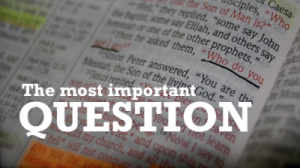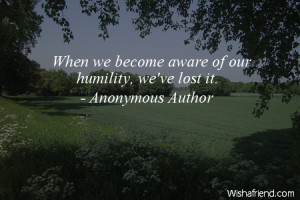 While there are a number of crucial spiritual questions, none is more important than this question asked: “But you, who do you say that I am? Peter might have answered “Son of Mary and Joseph” or “Son of the carpenter” or “A great teacher.” Or he might have uttered one of descriptions he’d learned since childhood from the Torah – titles we heard in last night’s reading from Judith: “Creator of the rivers, king of all creation, protector of the people.” But, in a graced moment Peter cut to the heart of Jesus’ identity: “You are Messiah, the Christ, son of the Living God.”
While there are a number of crucial spiritual questions, none is more important than this question asked: “But you, who do you say that I am? Peter might have answered “Son of Mary and Joseph” or “Son of the carpenter” or “A great teacher.” Or he might have uttered one of descriptions he’d learned since childhood from the Torah – titles we heard in last night’s reading from Judith: “Creator of the rivers, king of all creation, protector of the people.” But, in a graced moment Peter cut to the heart of Jesus’ identity: “You are Messiah, the Christ, son of the Living God.”
It’s crucial for each individual person to answer correctly. Peter got it right but he did not realize the full impact of his answer. It is the first time a disciple refers to Jesus as Messiah. But, he and the other disciples had the wrong notion of Messiah. To them it connoted a reigning King. They did not understand it involves suffering and death. Their idea of a Messiah was all glory; no guts.
Only one answer is objectively correct to Jesus query: “Who do you say I am?” Jesus didn’t say, “Great answer, Peter! Do any of the rest of you have anything to add? You others, how do you feel?” How you feel about Jesus doesn’t change who He is. There is a single correct answer to the question that is not based on feelings or personal opinions, but on objective revealed truth.
To stretch their understanding, Jesus immediately mentions His impending death and resurrection and the cost of discipleship. He’s hinted at it before but this is the first explicit mention of it. From here on, it will become a frequent theme as Jesus makes this intention known to go to Jerusalem. The disciples still did not really comprehend this until after Jesus’ resurrection. Once they had a fuller understanding of what Jesus meant – they were enabled to go out as bold witnesses.
Think about how difficult it must have been for the disciples to commit themselves to Jesus as the Christ? For centuries, faithful Jews had been waiting and looking for the promised Messiah. Many lived and died without seeing that hope fulfilled. Sometimes prophets came on the scene, raising hopes that they might be the Messiah. But they died and the people kept waiting. Then, suddenly there came upon the scene this young upstart, a mere carpenter from Nazareth who began preaching and performing miracles. Could He be the one? He certainly didn’t fit popular image of what the Messiah would be like. But the disciples committed themselves to Jesus as that long-awaited Messiah.
Remember, they didn’t have the 2000 years of church history that we have to confirm their faith. They were the first ones to say, “This is the One!” And they had to say it in the face of public opinion that didn’t agree with them. This fact is underscored by the contrast between Jesus’ first question, “Who do the multitudes say that I am?” and His second question, “But you, who do YOU say that I am?”
The disciples had to stand against strong currents to affirm their conviction that Jesus is the Christ. The Roman government didn’t care if Christians followed Jesus as long as they affirmed Caesar as Lord.
They also had to go against the opinions of the Jewish religious crowd, which had varying notions of who Jesus might be. The disciples had to stand apart from the Jewish religious crowd to affirm Jesus as Messiah.
Perhaps the most formidable ones that the disciples had to oppose were the Jewish religious leaders. The disciples were not formally educated as their leaders were in the Hebrew Scriptures. They had no public influence; they were not the recognized interpreters of the Law of Moses nor were they guardians of the Jewish law. Who did this bunch of uneducated fishermen think they were to go against the opinion of that august body of scholars?
This question: “Who do you say I am?” still divides people. It takes a strong faith, firm conviction and undying loyalty to take your stand with Peter and the disciples. And, it takes an unwavering friendship with Jesus to steadfastly affirm your conviction.
And, how do we do that AND follow Jesus directive: do not tell anyone? He said the same thing on the mount of the Transfiguration: “Tell the vision to no one.” I wonder, was it His way of saying: actions speak louder than words?
In the next few lines of the Gospel, Jesus cautions: If you are sincere in saying you want to follow Me, you must deny yourself to the point of losing your life. That’s a tall order! But, not much less that Benedict telling us to keep death daily before our eyes. That doesn’t mean being preoccupied with death because Jesus adds “you will have life.” So, be preoccupied with life – the opportunities of the moment.
Think about all the little deaths Jesus endured along the way: spending hours with the crowds when he might have preferred a quiet get-away for prayer – taking time to feed the crowd when it might have been simpler to take the disciples to mom’s for a home cooked meal; taking the energy to clear the temple of the sellers of unnecessary and costly sacraficial offerings when He might have slipped in through the side door to avoid the commotion at the main entrance.
We have abundant, daily opportunities to “die” these kinds of deaths. All that is required according to Benedict (in RB 72) is that we “pursue what we judge is better for the other rather than self.” Or as we challenge and promise each other (in one of our Benedictine Sisters’ Community statements): “We seek to form bonds of mutual love and respect and to call forth the best in one another.” When it is exhausting or especially trying, remember what Jesus promised: whoever takes up her daily crosses, gives up herself for my sake, will save herself – you will have life!
~ Reflection by Sister Roberta Bailey, OSB, Prioress
Continue Reading



